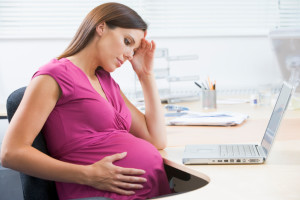 Until now UPS had two employee policies that seem to not make much sense from the standpoint of disability laws and reasonable accommodations because of not providing for accommodation to pregnant workers. The first policy was that if a company driver temporarily lost his license because of a DUI conviction, the company would consider assigning an additional driver to shuttle them around and keep up their job responsibilities while that driver works on reinstating his license. The second policy was that if a UPS driver became pregnant and was told to avoid heavy lifting because of pregnancy or pregnancy related disability, there was a chance that no accommodations would be made to let her continue to deliver packages. In the company”s eyes, pregnancy deserved less consideration than DUI conviction.
Until now UPS had two employee policies that seem to not make much sense from the standpoint of disability laws and reasonable accommodations because of not providing for accommodation to pregnant workers. The first policy was that if a company driver temporarily lost his license because of a DUI conviction, the company would consider assigning an additional driver to shuttle them around and keep up their job responsibilities while that driver works on reinstating his license. The second policy was that if a UPS driver became pregnant and was told to avoid heavy lifting because of pregnancy or pregnancy related disability, there was a chance that no accommodations would be made to let her continue to deliver packages. In the company”s eyes, pregnancy deserved less consideration than DUI conviction.
Earlier this week, the US Supreme Court issued a ruling that undermines those inconsistent policies—and any others that don’t require employers to lighten the workloads of pregnant employees when exceptions are made for others. In addition to accounting for the needs of employees with DUI convictions, UPS would make exceptions for employees whose high blood pressure or history of accidents prevented them from driving. “Why,” the Court asked in its opinion, “when the employer accommodated so many, could it not accommodate pregnant women as well?”
In addition to the recent amendment to the pregnancy anti discrimination laws, this decision carries symbolic value: It’s another formal federal recognition that pregnancy demands reasonable accommodation as a challenge that only women have to deal with, and as something that comes with a set of health risks that run up against the exigencies of just about all jobs.
This particular case, reviewed by the Supreme Court, involved Peggy Young, a (now-former) UPS driver, who, while pregnant, requested a less demanding workload after a midwife told her to limit her lifting to 20 pounds. UPS denied her request on the grounds that its drivers needed to be able to lift packages of at least 70 pounds, and put her on leave, without pay or health benefits. (UPS has since changed its policy.)